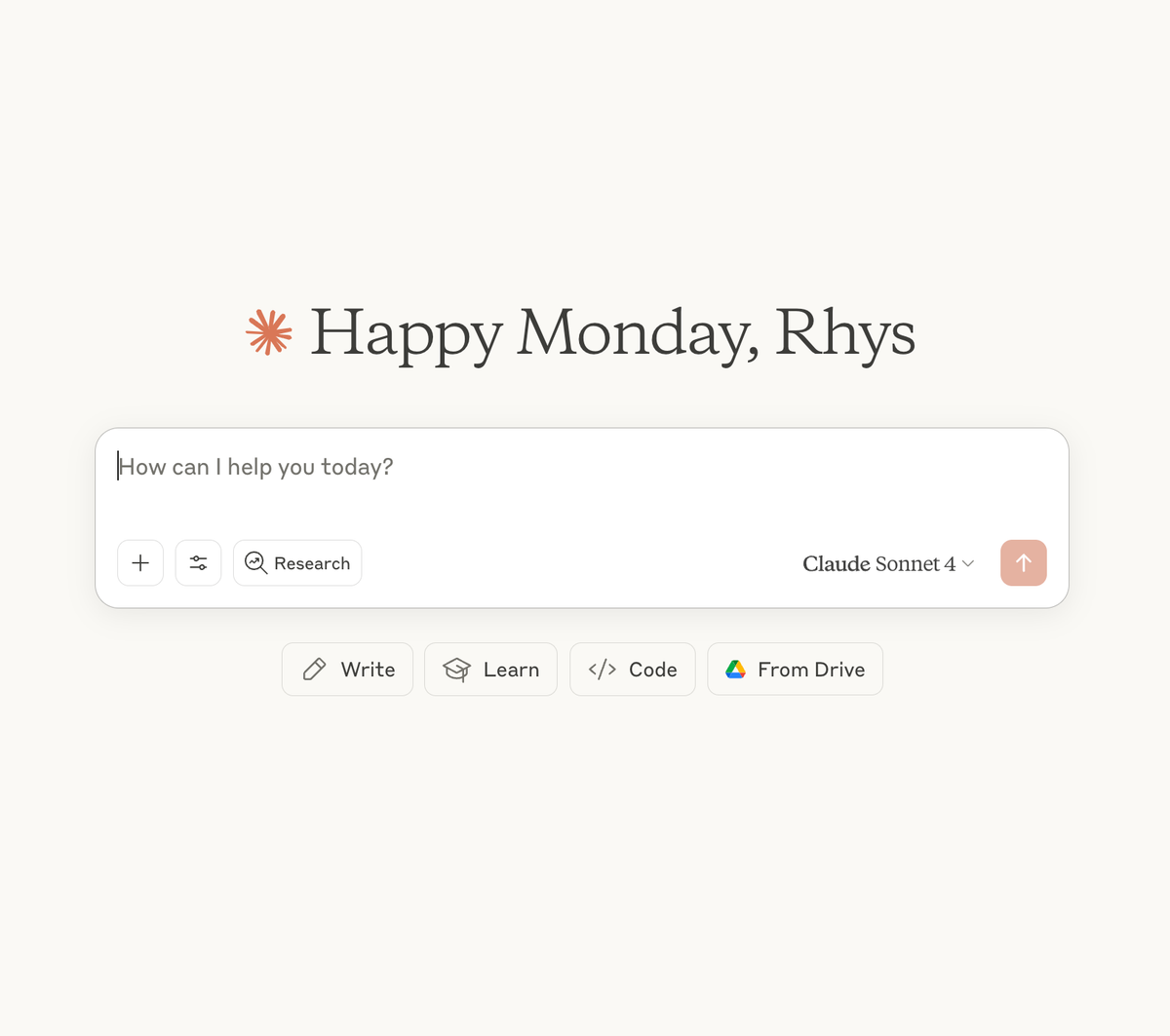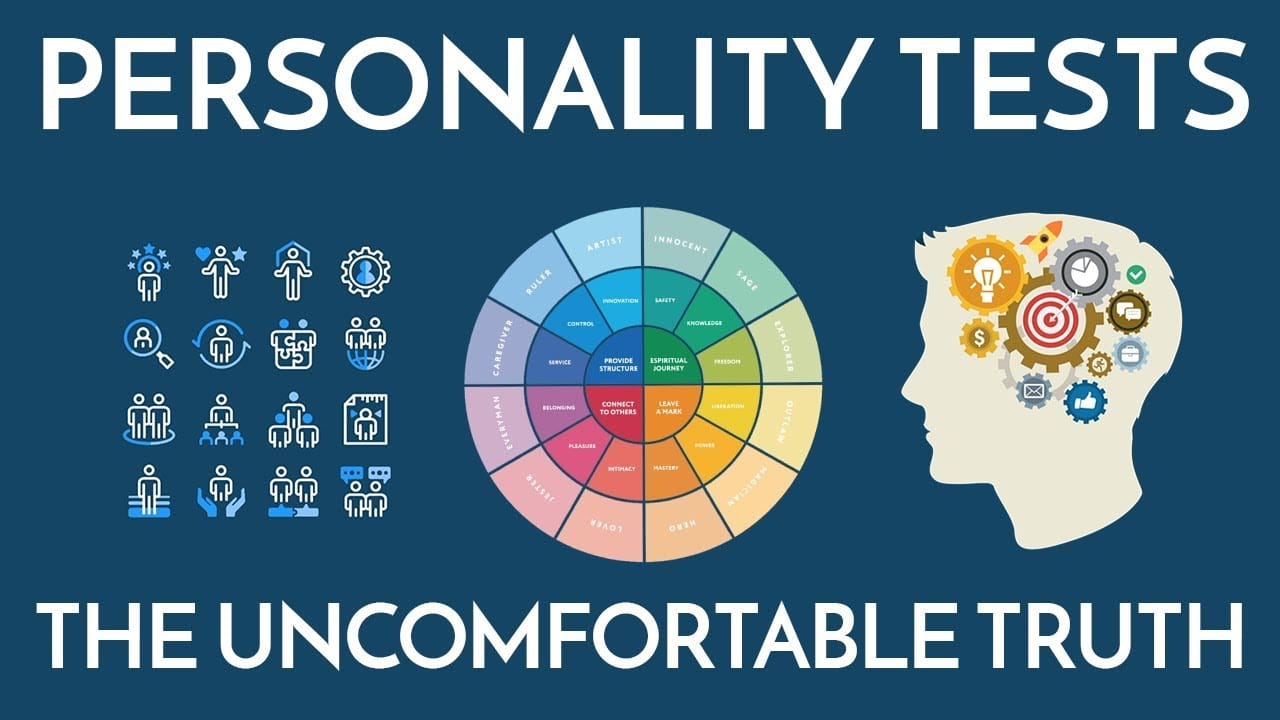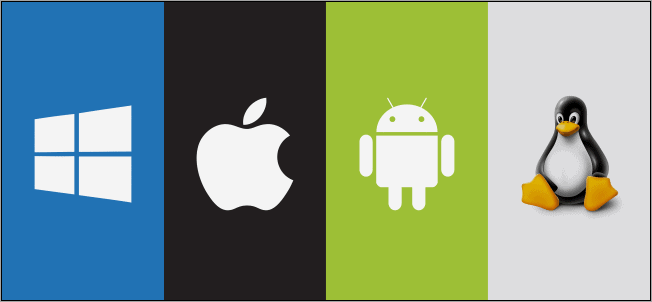Building a personal AI operating system
Most AI advice is generic. But what if you could create an AI coach that understands your specific personality traits, communication style, and ways of working? By feeding Claude personality test results (and reflections), you can build a system that provides more tailored guidance.

Several weeks ago now I stumbled across a podcast where someone was talking about using ChatGPT as their personal coach. Not for generic advice, but for deeply personalised guidance based on their personality. I thought that sounded interesting, I've used these AI chats for making things more efficient and for getting feedback, but the way they were talking about it sounded more like a coach than a calculator.
The problem
We all have different working styles, communication preferences, and decision-making patterns. Most advice is generic - especially from AI.
I tend to believe the idea that any advice someone gives you is really want they want to say to themselves, so be careful before you apply it to your own situation.
But, of course, understanding yourself is hard, and translating that into guidance by yourself is harder. That's, in theory, why 'personality tests' exist. I've done several before to try to understand more about how I work, my strengths, and weaknesses, but they rarely amount to more than an interesting read.
I've used the Gallup StrengthsFinder tests a few times for myself and for my team, but then they were only useful for a few workshops and to make documents that are collecting digital dust somewhere.

Hiten Shah's approach
The podcast was Hiten Shah on 'How I AI' with Claire Vo explaining his methodologies for using AI to help him with his work. One of his tips was to 'show AI what great looks like' by feeding it as much quality context as you can.
Hiten demonstrated how he'd built a project in ChatGPT that could coach him on difficult conversations, help him understand his reactions to workplace stress, and practice pitches before presenting to his manager.
The difference is between asking AI important questions and letting it pull data from its opaque data banks Vs having it suggest answers with the context of the results of psychological tests and work preferences.
Plus the term 'personal operating system' was intriguing. So I thought I'd give it a go.
Building a personal operating system
The data gathering phase
I decided to build mine using Claude instead of ChatGPT. The first step was gathering personality data. I used free tests I could find on the internet, plus the data I'd already gotten from the CliftonStrength tests that were paid for by companies past.
- Enneagram assessment - Free online, some parts resonated more than others, I just included my commentary on what was good and what was bad in the resulting write-up.
- Myers-Briggs equivalent - Used the free 16personalities.com test. Generally not a fan of this but, you know, experimenting to see what's what.
- CliftonStrengths - I already had results from work
- Communication Styles 2.0 - A free assessment focusing on how you prefer to give and receive information
- Human Design chart - Despite being quite woo-woo, it was free and provided another data point so I added it to the experiment.
- Atlassian's user operating manual - I also completed a personal operating manual using templates I found online. This was the one that felt the most accurate but also the most bias because it was my own reflections of preferences.
If this experiment proves to be useful in the future I'll likely invest in more detailed or more rigorous tests, but for now I decided this would do.
The technical setup
The implementation is straightforward. I created a Claude project with detailed instructions explaining how to use the test data. If you want to do this and want the instructions lmk.
The key was being specific about what I wanted: not generic advice, recommendations grounded in my traits and preferences, and for goodness sake to be concise.
Then I uploaded all the personality test results and my operating manual. It took a few hours to complete the tests, transcribe the non-PDF results into a doc, add my own commentary, and write the instructions - all told it maybe took 3-4 hours?
Testing and iteration
My first test was simple: "What are my top strengths and biggest blind spot?"
The response was different from standard AI advice. Instead of generic leadership blah blah, I got specific references to my Enneagram type, communication style, and how these showed up in workplace situations.
The ideas were more tailored to me rather than advice that could apply to anyone.
I am somewhat suspicious of a 'horoscope affect' where the data I've given it just means its better at producing good sounding blah blah, but I suppose only time will tell on this one.
And the commentary I gave it in the documents about 'this feels right' or 'this feel inaccurate' did turn up in the responses which was reassuring.

The broader implications
In this way personality tests can become tools rather than just interesting reads. And most importantly, you can improve on them. Since developing the project and publishing this post it hasn't been that long and I haven't used it much, but I have used it.
I intend to come back to it now and again to edit and iterate over it to make it better.
Though it's important to remember again the AI doesn't understand you, it can't truly empathise, it's not a replacement for a skilled human coach or mentor - but it could be a good stand-in if you can't afford or don't have the appetite for a human coach.
For AI usage
Hiten Shah's discussion demonstrated the value of context heavy AI interactions. Using personalised systems rather than generic or quick prompts makes the response considerably more helpful.
I've had a very sci-fi dream inspired by the old film 'spykids' and a little from Jarvis in Marvel of having an 'assistant' droid or bot that can do things for me. In both of those examples the AI does understand the person its helping. Maybe this is a small but interesting step towards that.
Privacy implications and concerns
Before getting into the 'how-to', let's talk about what we're actually doing here. Uploading comprehensive psychological profiles and work preferences to an AI system owned by a commercial company.
What you're sharing isn't just casual conversation data. You're providing detailed personality assessments, communication preferences, stress responses, decision-making patterns, and potentially sensitive work-related information. It's arguably more personal than most things people share on social media.
Data persistence. Unlike a conversation that might be forgotten, this information becomes part of a persistent project that could theoretically be accessed, analysed, or referenced indefinitely. Claude states they don't train on user data, but policies can change.
The trade-off. You're exchanging quite personal information for personalised coaching that would otherwise require expensive human expertise. For many people, this trade-off makes sense, but it's worth being intentional about it.
Mitigation strategies. Consider what level of detail you're comfortable sharing. You might choose to include personality test results but exclude specific workplace situations, or use general descriptions rather than detailed personal examples.
IMO most of us already share enormous amounts of personal data through various digital services. This feels different because it's explicit and psychological rather than behavioural, but the privacy implications aren't necessarily worse than what you're already doing online.

How to build your own
The essential steps
- Take the personality assessments - Most are available free online - the more the better.
- Document and reflect - A lot of people and a lot of research tells us these tests are BS. Read through the results and copy them into a doc somewhere, then use them as a template to comment, edit, and change them to better fit you.
- Complete a personal operating manual - Use existing templates to document your work preferences
- Set up a Claude project with clear instructions about how to use this information
- Test and iterate based on what works for your specific needs
Reflection
This experiment sits at the intersection of self-awareness and AI capability. It's not about AI developing genuine understanding of who you are - it's about giving AI enough context to provide more relevant responses.
The approach becomes more valuable as AI gets better at processing complex information, but the foundation remains understanding yourself well enough to provide good input data.
In a time where most people get their advice from the internet anyway, this kind of personalised system offers something a little different - responses that account for how you work rather than how people work general.
Let me know if you give it a go - I'd be curious to hear how it works for different personality types and working styles.
